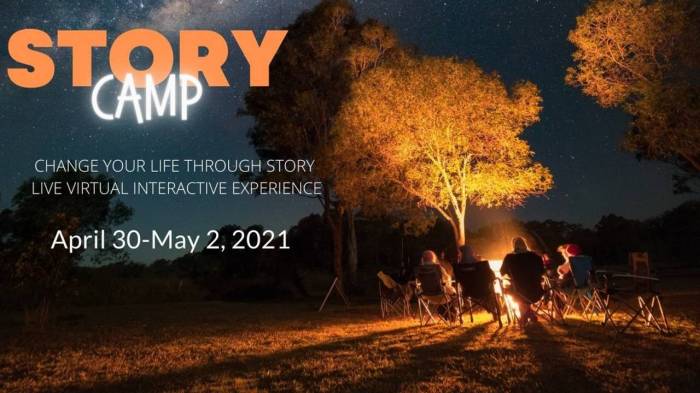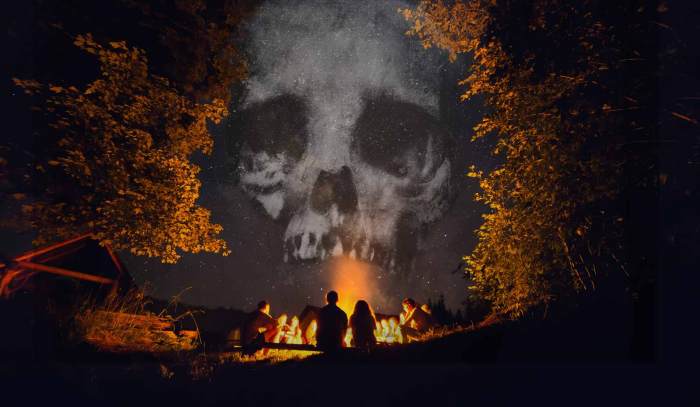I brought the stories to camp in spanish duolingo – In the realm of language learning, “I brought the stories to camp” in Spanish Duolingo emerges as a captivating phrase, inviting us to delve into the intricacies of Spanish language, culture, and the art of storytelling.
The Spanish Duolingo course, renowned for its interactive and engaging approach, provides a structured framework for learners to acquire Spanish language skills. Within this framework, the phrase “I brought the stories to camp” serves as a gateway to exploring the nuances of Spanish grammar, vocabulary, and cultural context.
Introduction

The phrase “I brought the stories to camp” is a common expression used in the Spanish Duolingo course to introduce a lesson on camping and storytelling. The Spanish Duolingo course is a free online language learning platform that teaches Spanish through interactive exercises and gamified lessons.
The course is divided into units, each of which focuses on a specific topic or skill.
The unit on camping and storytelling introduces students to vocabulary and phrases related to these topics. The phrase “I brought the stories to camp” is used as an example of how to use the vocabulary in a sentence. This phrase also serves as a reminder of the importance of storytelling in Spanish-speaking cultures.
Translation and Meaning: I Brought The Stories To Camp In Spanish Duolingo

The Spanish translation of the phrase “I brought the stories to camp” is “Traje las historias al campamento”. This phrase is grammatically correct and uses the correct vocabulary. The verb “traer” means “to bring”, and the noun “historias” means “stories”.
The preposition “a” means “to”, and the noun “campamento” means “camp”.
This phrase is commonly used in Spanish-speaking countries to refer to the act of bringing stories to camp. It can also be used figuratively to refer to the act of sharing stories with others.
Related Vocabulary and Phrases
The following table lists some related vocabulary and phrases that are commonly used in the context of camping and storytelling:
| English | Spanish |
|---|---|
| Camp | Campamento |
| Story | Historia |
| Tell a story | Contar una historia |
| Listen to a story | Escuchar una historia |
| Fireside chat | Charla junto al fuego |
Cultural Context and Storytelling Traditions, I brought the stories to camp in spanish duolingo
Storytelling is an important part of Spanish-speaking cultures. In the past, stories were often told around the campfire to entertain and educate people. Today, storytelling is still a popular tradition in many Spanish-speaking countries. Stories are often told at family gatherings, social events, and even in schools.
There are many different types of stories that are told in Spanish-speaking cultures. Some of the most popular types of stories include fairy tales, legends, and historical accounts. Stories are often used to teach moral lessons, to entertain, and to pass on cultural traditions.
Practical Applications
Storytelling is a great way to build connections, create memories, and foster a sense of community. It can also be a fun and educational activity for people of all ages.
Here are a few tips for incorporating storytelling into camping experiences:
- Choose a story that is appropriate for the audience.
- Tell the story in a clear and engaging way.
- Use props and gestures to help bring the story to life.
- Encourage participation from the audience.
- Make storytelling a regular part of your camping trips.
Language Learning Benefits
Storytelling in Spanish can be a great way to enhance language learning skills. Exposure to authentic language, vocabulary expansion, and cultural immersion can all help learners to improve their Spanish skills.
Here are a few ways to integrate storytelling into Spanish language lessons:
- Read stories in Spanish to your students.
- Have students tell stories in Spanish.
- Use stories as a basis for discussion and grammar exercises.
- Create a storytelling club or group.
Question Bank
What is the significance of “I brought the stories to camp” in Spanish-speaking cultures?
In Spanish-speaking cultures, storytelling holds a deep cultural significance, particularly in the context of camping and outdoor activities. Campfires and gatherings often become spaces for sharing traditional stories, legends, and personal experiences, fostering a sense of community and connection.
How can storytelling enhance language learning?
Storytelling in Spanish provides a rich and engaging context for language learning. It exposes learners to authentic language, expands their vocabulary, and promotes cultural immersion. By actively participating in storytelling activities, learners can improve their listening comprehension, speaking fluency, and overall language proficiency.
What are some tips for incorporating storytelling into camping experiences?
To incorporate storytelling into camping experiences, consider planning storytelling sessions around a campfire or in a cozy tent. Encourage campers to share their own stories, read aloud from books, or engage in imaginative storytelling games. Create a welcoming and supportive environment where everyone feels comfortable participating.

